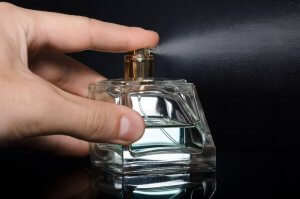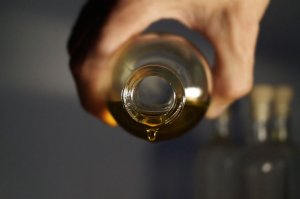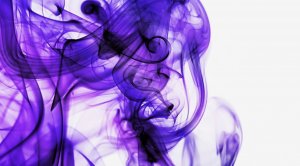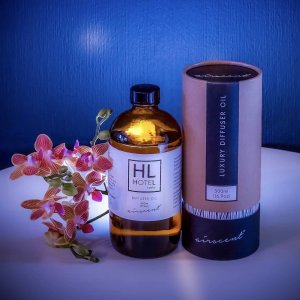The path to becoming a master perfumer is a journey that begins with the realization that perfume creation is uniquely chemical in nature and a stand alone art form.
In the same manner as master painters of the Renaissance, such as Michelangelo and Leonardo da Vinci, used color and brush strokes to express their immense talents, technique and skills, the perfume master is a passionate, consummate artist armed with finely schooled powers of perception and a profound understanding of the elements of olfaction.
According to master perfumer, Jean-Claude Ellena: “To create is to be responsible for your own universe.”
As the mighty elements of the vast cosmos; namely; earth, water; fire and air, coalesce to reveal a grand schematic order, so does the deft synergy of blended elements unravel an aromatic fusion with its own unique sequence.

Our perfumers understand that becoming a true master of the craft demands a fervent commitment, a willingness to learn and a nurturing of the fragile balance between artistry and science.
It also requires the knowledge of how to effectively combine creativity with a profound understanding of accords, the interaction of notes and and how they become altered over time.
This knowledge can only be acquired by extensive study and hands-on experience, and it can take a decade or more to sufficiently hone skills so that they reach a level of proficiency.
Historically, the art of perfumery has been associated with much more than just the creation of a scent.

Early fragrances were created using natural substances such as: flowers, spices and resins.
In the ancient world, they were elevated to other aspects of culture; namely medicine and spirituality. They also symbolized luxury, status and an association with mystical rituals believed to dispel the evil forces of demons.
Today’s perfume demands a much more complicated process than the formulations of centuries past.
Schools of perfumery are integral to the journey of the master perfumer.
Their specialized training, post-secondary programs and courses that are taught by renowned specialists are vital to the evolution of the modern master perfumer.
From their teachings and the joint skills of talent and knowledge a permanent fusion to exquisite perfume formulation is borne.
These schools offer programs that require up to six years to complete.
Specifically honed to help students stand out from others of their ilk, these initiatives also offer jobs for students to gain experience while still completing their studies.
An apprentice perfumer can also gain practical experience and learn from the ground up by working in an entry level position within the perfume industry.
Such jobs include: fragrance evaluator, sales representative or fragrance chemist.
The Many Aspects of Perfume Creation
The world of fragrances has many disparate yet connective pieces. These include: fragrance families; aromatic molecules and accords. More on each follows below.
Each scent family has its own one-of-a-kind character.
The iconic fragrance wheel developed in 1992 by international perfume expert, Michael Edwards, is a circular diagram, which illustrates the four distinct fragrance families; namely: woody, floral, ambery (formerly oriental) and fresh, in relation to each of their corresponding sub-families.
Master perfumers must understand how these separate categories blend with each other, and gleaning that expertise can only come from years of education and training.
The perfume accord has a moniker that reveals the similarity of fragrance to another art form; namely music.

An accord denotes a combination of several ingredients that when added to a fragrance formulation becomes more than the sum of its parts.
Its composition requires the merging of diverse raw materials that collectively define the quintessence of a scent’s particular, one-of-a-kind character. Aromatic molecules combine and form the foundation of a scent.
Vital to the modern masters, all perfumers must recognize the process involving how aromatic molecules fuse with one another to form an accord.
The perfume process always begins with the transformation of an image into a fragrance.
According to scent expert, Ann Gottlieb: “…A lot of work is intuitive and a lot involves factoring in what is going on on the time fragrance marketplace.”
Understanding Both Natural and Synthetic Ingredients
One walking the arduous road leading to master perfumer must understand the diverse nature of chosen ingredients.
Natural elements derive from plants, seeds, fruit and flowers while synthetic aspects are created in laboratories.

In today’s perfume industry, expert perfumers rely on aromatic molecules that do not exist in Mother Nature’s order of things.
While there are pros and cons associated with both, and the novice must study their chemical makeup and forms of utilization closely, synthetic ingredients offer a greater palette for perfumers to work with.
What Are The Different Types Of Perfumers?
An apprentice perfumer may aspire to one of the two types; namely niche or designer.
While they both do their magic with identical ingredients, their approach and philosophy are vastly different.
Niche fragrances, also known as artisanal scents, are typically created by smaller, independent perfume houses or individual perfumers, and they are not as widely distributed as mainstream varieties, which are sold in many department store and retail outlets. They allow for more creative freedom on the part of the perfumer.
Designer fragrances, however, are more focused on mass appeal for a specific brand.
Some master perfumers have another moniker; namely, nez, which means nose in French.
These experts cannot only remember literally hundred of diverse scents, they can also distinguish between them in ways no untrained nose ever could.
Defining The Role Of A Master Perfumer
Master perfumers are artisans of olfactory artistry, possessing an expertise in the creation of fragrances. With a diverse understanding of the intricate nuances of scents, a master perfumer combines various aromatic elements to craft unique and harmonious compositions.
This role demands an acute sense of smell, creativity, and an extensive knowledge of raw materials, including rare and exotic ingredients. Beyond technical prowess, a master perfumer must interpret and translate emotions, concepts, or brand identities into olfactory experiences.
They navigate the delicate balance between top, middle, and base notes, ensuring a fragrance evolves seamlessly over time. Adept at blending tradition with innovation, a master perfumer adapts to cultural trends while maintaining a distinctive signature style.

In addition to artistic finesse, collaboration is vital, as master perfumers often work closely with marketers, product developers, and brand representatives to align fragrances with market demands.
The role encompasses a lifelong commitment to learning, as staying abreast of new materials and techniques is essential in this dynamic and competitive field.
Ultimately, a master perfumer’s legacy lies in the enduring allure of their olfactory creations, shaping the sensory landscape of perfumery.
The Importance of Time And Patience
These intangible factors cannot be directly taught in any school, but they are learned and become instinct every time a master perfumer creates a new formulation.
The final scent never occurs as a serendipitous moment after a few tries or even after 50 or more attempts.
An apt analogy can be found in the art of wine creation and the time grapes must ferment in order to reach a level of perfection that only fine masters can recognize.
Captivating the senses and evoking emotions with a fragrance is a skill that can only come with time.
Patience too is much more than a virtue, as an old saying goes.
It is an untapped power that harnesses attitudes, wisdom and the tolerance for errors that serve as stepping stones to perfection.
In Conclusion
The journey into the realm of a Master Perfumer is a captivating exploration of artistry, innovation, and an unwavering commitment to the craft of scent creation.
These artisans not only possess an acute olfactory sense but also an intuitive understanding of the emotional resonance that fragrances can evoke.
As a perfume manufacturing company, we take pride in championing the legacy of Master Perfumers who have shaped the fragrance industry with their expertise and passion.
The title goes beyond a mere acknowledgment of technical proficiency; it signifies a harmonious blend of tradition and modernity, a keen sense of market trends, and an ability to weave olfactory tales that transcend time.
We recognize that the title extends beyond a professional accolade—it encapsulates a profound understanding of the intricate dance between notes, an unyielding pursuit of perfection, and an enduring passion for the transformative power of fragrance.
As we continue our own olfactory journey, we’re inspired by the standards set by these masters, and continue to celebrate each of their achievements with every fragrance we create.

 alpha aromatics®
alpha aromatics®

